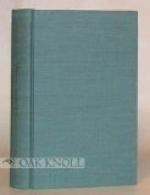|
This section contains 218 words (approx. 1 page at 300 words per page) |

|
Wain can be as quixotic as our own Southern "Fugitive" poets (whose work he intensely admires). Like Allen Tate's Aneas, he has "an infallible instinct for the right battle on the passionate side." Unfortunately, he sometimes lacks the irony that would save him from the excess of insisting, "only in the sphere of art is humanity able to rise totally above its failures and inadequacies." One is also embarrassed to be told that in reading poetry, "we see our imperfections mirrored in our splendors, and we accept ourselves, at last, in peace and thankfulness." (p. 19)
When he concentrates on the work of individual poets, he is superb. He displays empathy and insight in discussing the influence the family history of Milton's patrons had on Comus, or the effect of Eddas on the subjects and style of the early Auden. His magnificent tributes to Philip Larkin and William Empson's...
|
This section contains 218 words (approx. 1 page at 300 words per page) |

|


